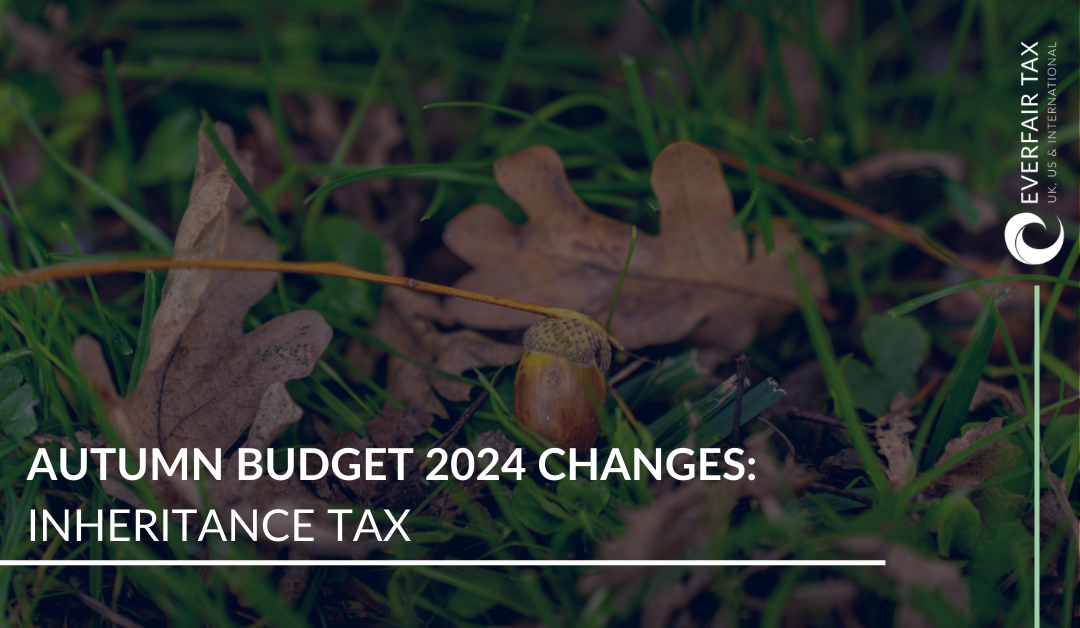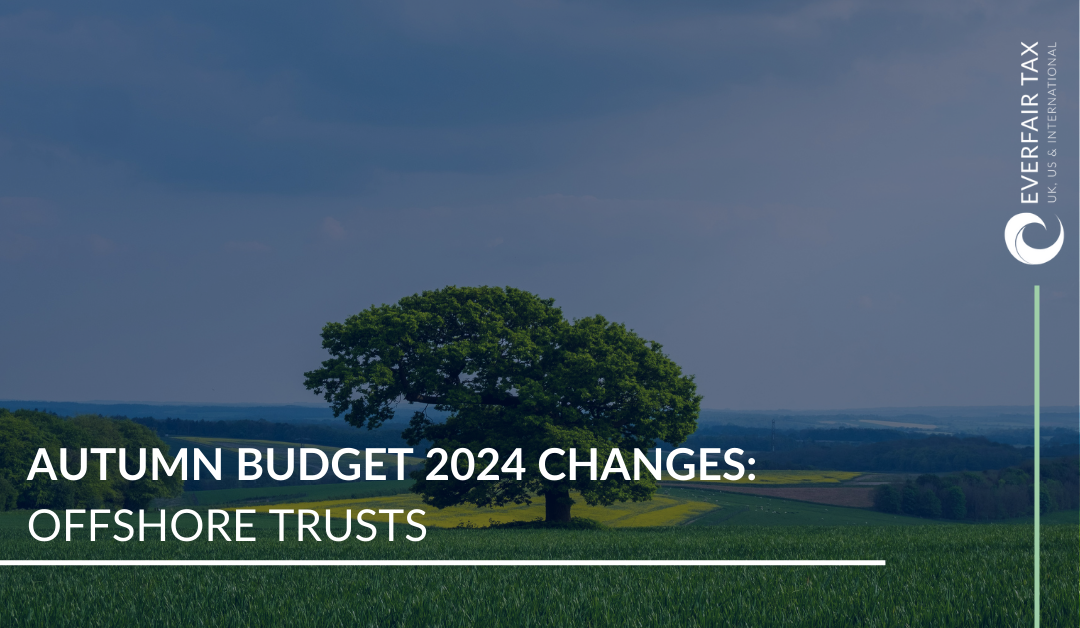Capital Gains Tax on Beneficiary-Taxed Offshore Trusts
31 July 2022
Offshore Trusts Series
In the previous part in our series on offshore trusts we considered the UK income tax treatment of beneficiary-taxed offshore trusts. In this fifth part of our series we consider the capital gains tax treatment of beneficiary-taxed offshore trusts.
This is part 5 of our Offshore Trusts blog series, written by our Associate Director Lawrence Adair. Read part one here: ‘All you need to know about Offshore Trusts’ . Read part two here: ‘Residence Positions and Offshore Trusts’ Read part three here: ‘Settlor-Interested Offshore Trusts’ . Read part four here: ‘Beneficiary Taxed Offshore Trusts’

Capital gains tax on beneficiary-taxed offshore trusts – assessment of trustees
As for a settlor-interested offshore trust, one that is beneficiary-taxed is not liable to capital gains tax except that the trustees are assessable on gains from UK property interests. These are taxed as follows:
Residential property interests:
28% capital gains tax with capital gains rebasing for interests held at April 2015
Commercial / certain indirect property interests:
20% capital gains tax with capital gains rebasing for interests held at April 2019
Capital gains tax on beneficiary-taxed offshore trusts – assessment of beneficiaries
Gains not assessed as UK property gains, including pre-April 2015 / 2019 gains due to rebasing, are generally assessable on UK resident beneficiaries. How they are assessed is that they are stockpiled for matching to capital payments received by the beneficiaries. This includes notional capital payments (see the fourth part of the series for more details of these). Unless the payment is matched to foreign source income under income tax anti-avoidance provisions.
Gains are not matched to capital payments made to non-UK resident beneficiaries except in the tax year a trust ceases.
The rate of tax on matched gains is up to 20% depending on the beneficiary’s level of income. In addition, a surcharge of up to 60% applies if a gain is not matched to a capital payment made in the same or following tax year. This can increase the effective rate to 32%.
Where capital payments are made to more than one beneficiary in a tax year, gains are matched to beneficiaries in proportion to payments received.
Capital payments not matched to gains in a particular tax year are carried forward for matching in future tax years. Similarly, unmatched gains are carried forward.
Trust capital losses, however, can only be set against beneficiary-taxed trust gains of the same or future tax year. They cannot be set against the beneficiary’s personal gains or any settlor-interested gains. In addition, a beneficiary’s personal capital losses cannot be set against matched trust gains.
Capital gains tax on beneficiary-taxed offshore trusts – gains assessed on others
While gains of beneficiary-taxed offshore trusts are principally taxed on the beneficiaries, there are some instances where they can be taxed on someone else.
A UK resident settlor is treated as receiving capital payments, with gains matched accordingly, where the payment is to a spouse / civil partner (including those living together as such) or their minor children. The residence of the recipient spouse etc. is irrelevant while tax legislation gives the settlor entitlement to recover any tax they pay from their spouse etc.
Where certain conditions are met for capital payments made to a non-UK resident beneficiary, someone other than the recipient beneficiary can be treated as receiving a capital payment if an onward gift of it is ultimately made to a UK resident person. This will be the settlor if the onward recipient is a spouse etc. though tax legislation again gives them entitlement to recover any tax they pay from their spouse etc.
Capital gains tax on beneficiary-taxed offshore trusts – remittance basis for UK resident but non-domiciled individuals
The remittance basis can be claimed by UK resident but non-UK domiciled individuals for non-UK gains matched to capital payments. (Except where a UK resident settlor is treated as receiving direct capital payments made to their spouse etc.).
Capital gains tax on beneficiary-taxed offshore trusts – other matters for UK resident but non-domiciled beneficiaries
One final point relates to two reliefs for UK resident but non-domiciled beneficiaries. Prior to 2008/09, such beneficiaries were not assessed at all to offshore trust gains attributed to capital payments received by them. When this was changed from 2008/09 two transitional reliefs were introduced:
- An exemption for pre-6 April 2008 gains and capital payments; and
- Rebasing of assets held on 6 April 2008 and standing at a gain. This is to restrict the tax payable to the post-April 2008 growth. An irrevocable election covering all relevant assets is required to be made by the trustees. This must be made by 31 January after the first tax year in which a capital payment is received by a UK resident beneficiary.
3 most important points to take away
Other than certain trustee-assessed UK property gains, gains of a beneficiary-taxed offshore trust are stockpiled for matching to capital payments made to UK resident beneficiaries. (And non-UK resident beneficiaries in the tax year the trust ceases). Though there is surcharge of up to 60% on the tax liability for gains matched at least two tax years later
Capital payments made to a beneficiary of a beneficiary-taxed offshore trust can be treated as received by the settlor or another individual in certain circumstances including where the payment is to the settlor’s spouse or minor children
UK resident but non-domiciled beneficiaries can benefit from the remittance basis for non-UK gains of a beneficiary-taxed offshore trust matched to them and from transitional reliefs for pre-2008/09 gains and capital payments
Written by Lawrence Adair

News
For updates featuring tax changes, reminders for deadlines, pointers on how to maximise your accounts, and information on Everfair Tax and their activities: you need look no further than our news & resources pages.
Contact Us
Need some UK, US or International advice?
Contact us now.
Weybridge Office
Ground Floor, 37a Church Street
Weybridge, Surrey KT13 8DG
Tel: 01932 320 800
London Office
40 Gracechurch Street,
London, EC3V 0BT
Tel: 020 3949 5999
Email: info@everfairtax.co.uk


